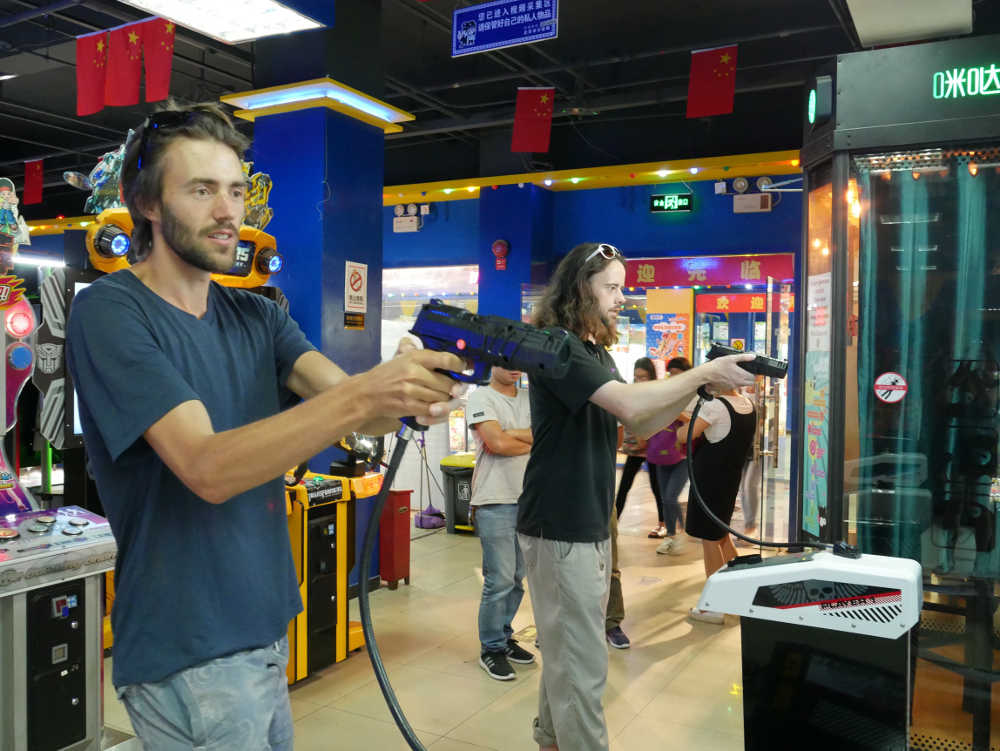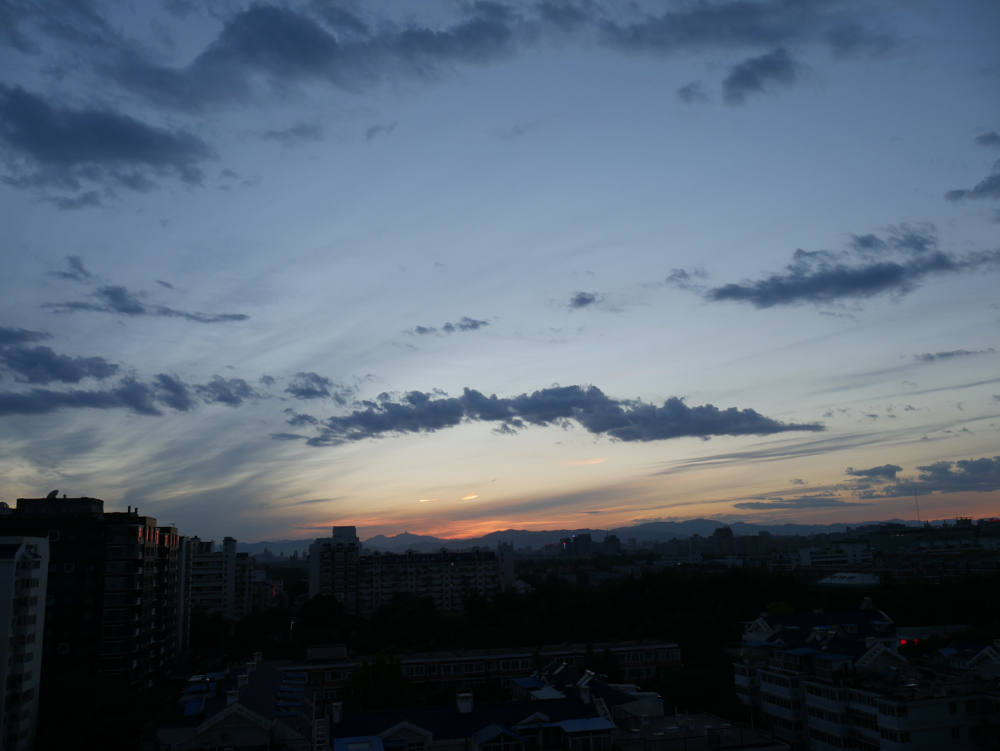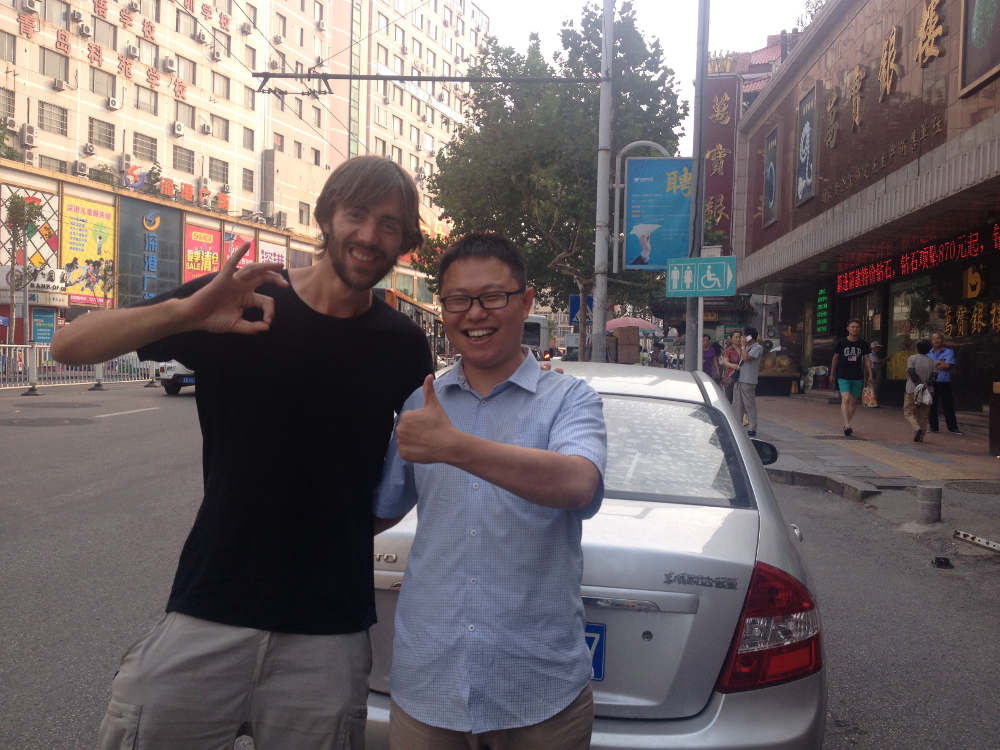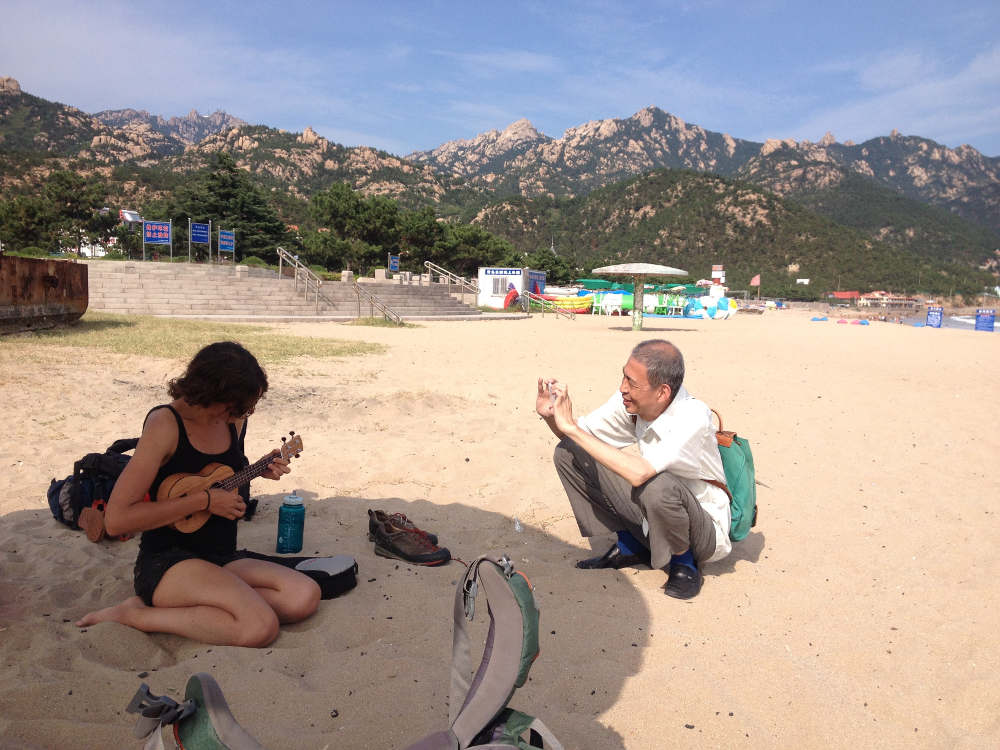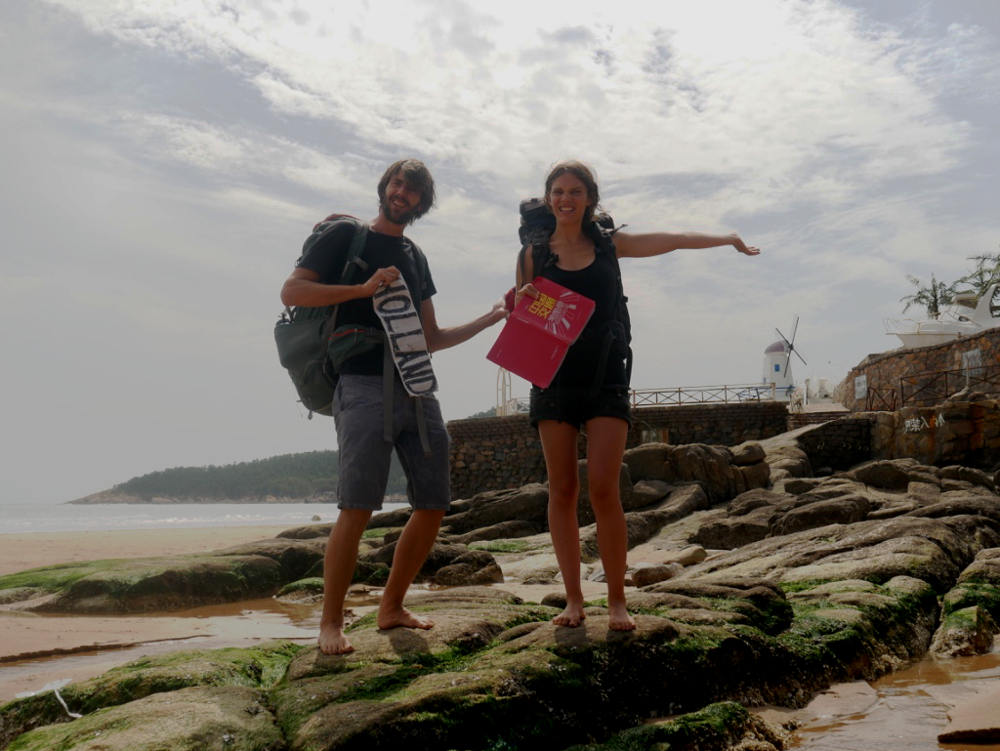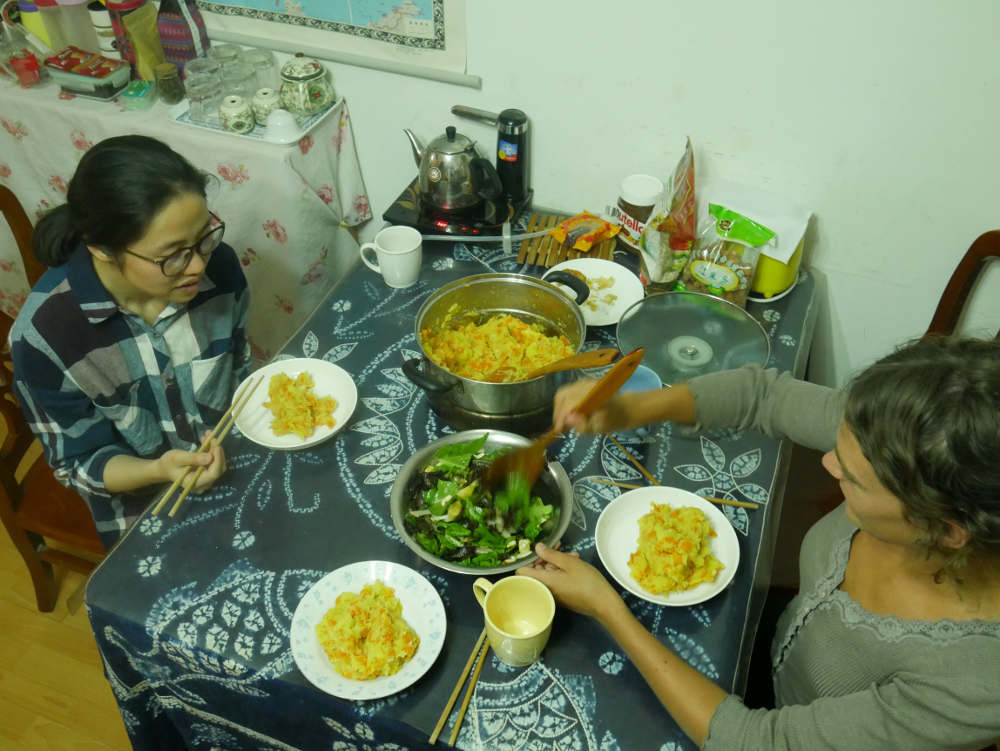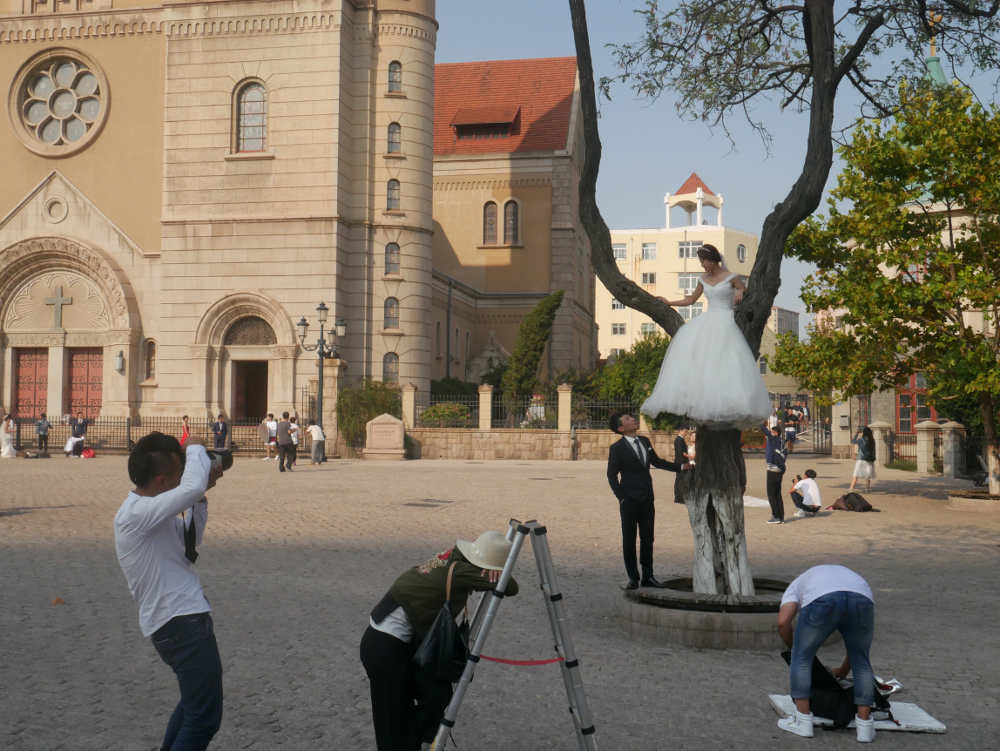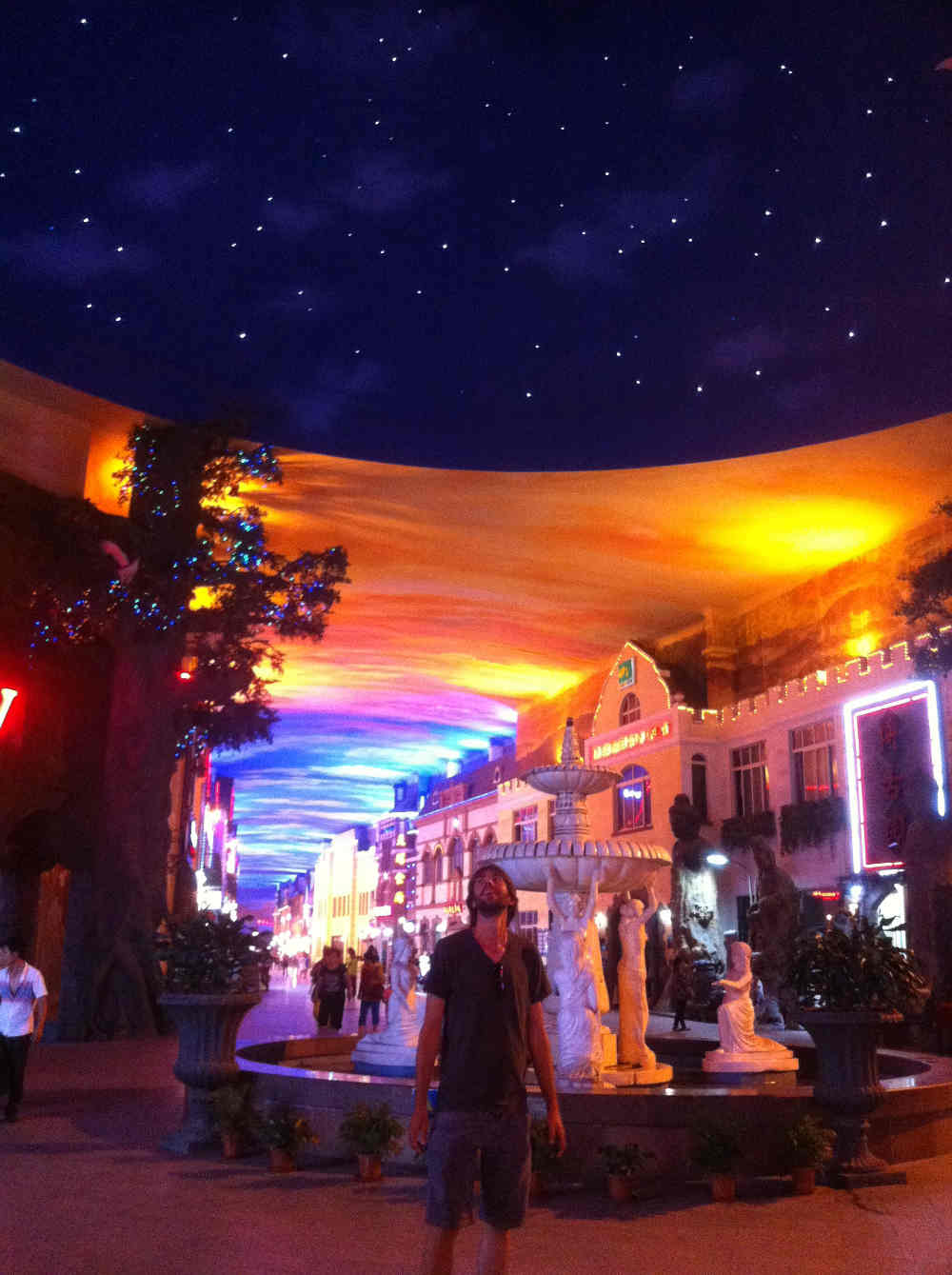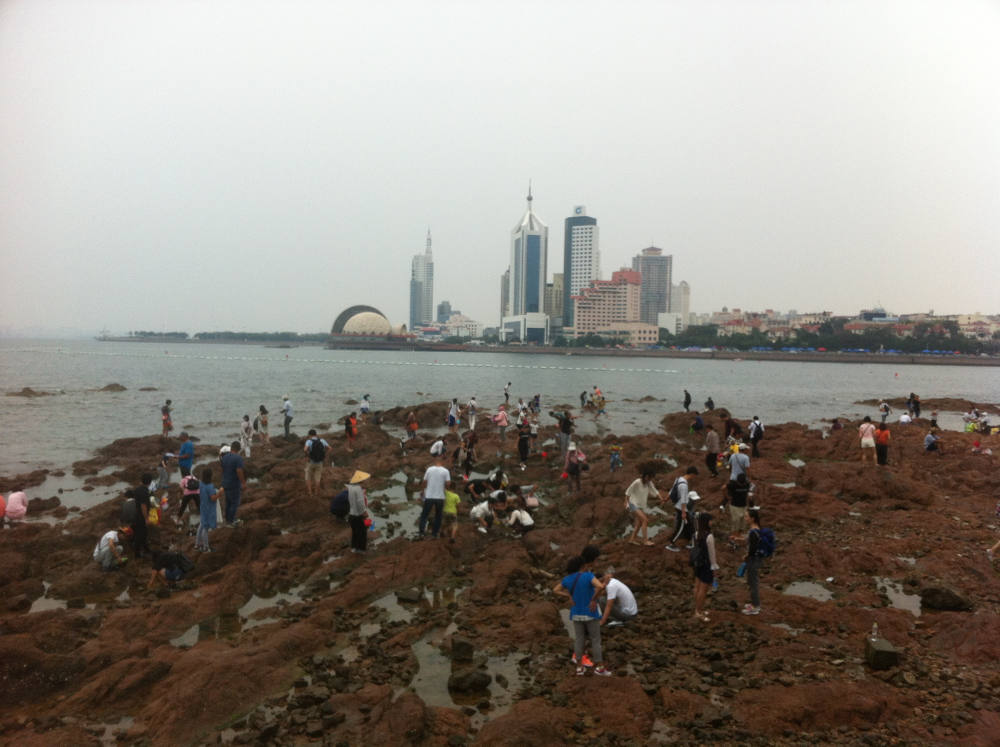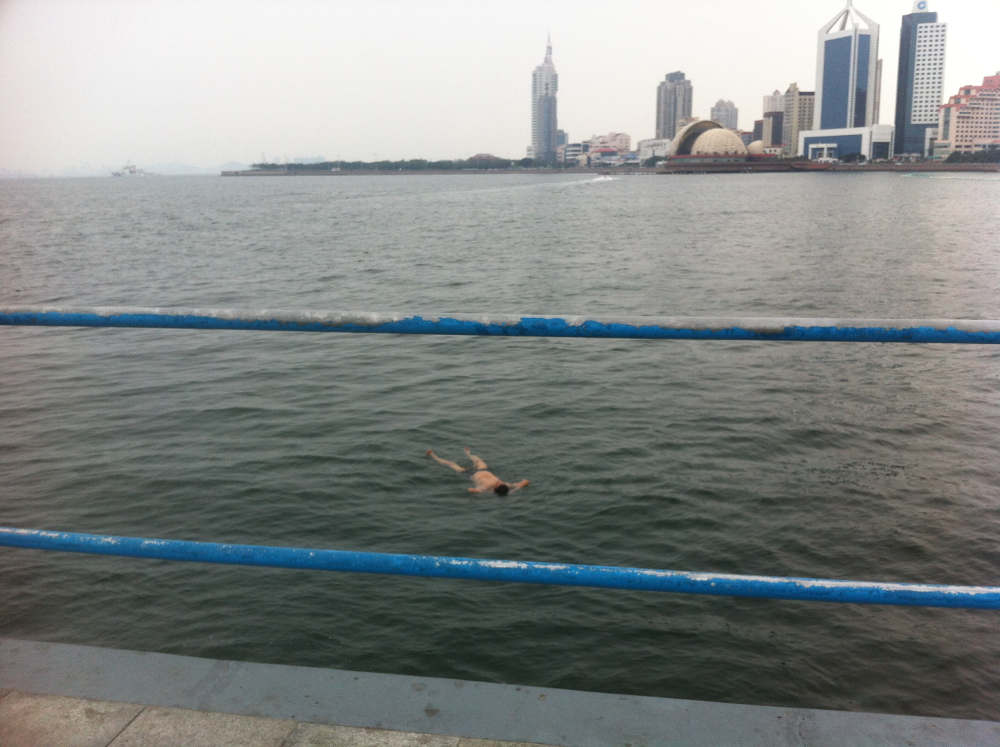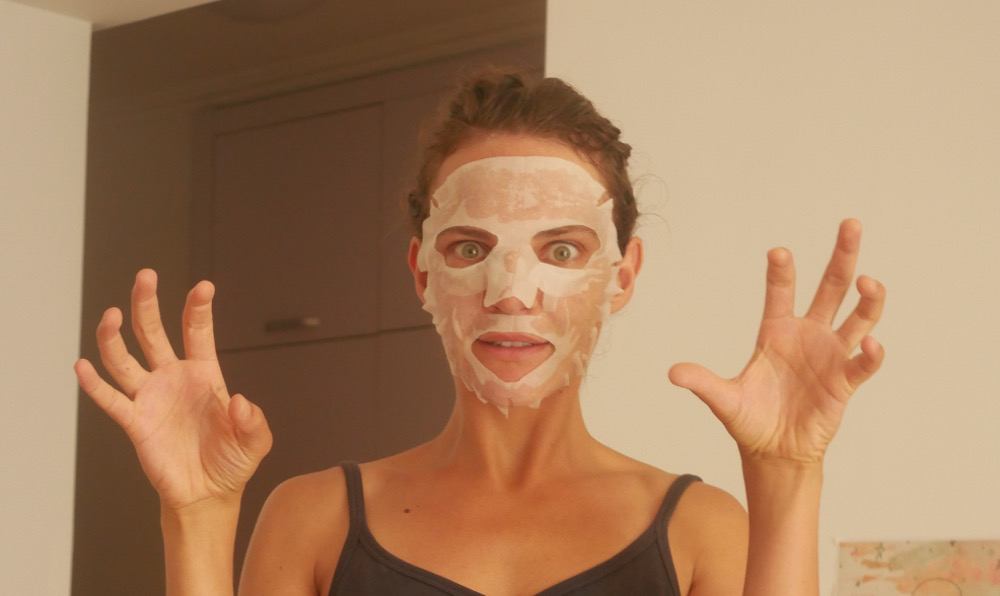Qingdao, September 2016
You can’t escape either on a visit to China: the Great Wall in all its ancient glory and its more contemporary and less inspiring modern-day brother: the Great Firewall. Even with a VPN (virtual private network, to access websites blocked by the government) it’s a struggle to do anything online. Streaming low quality videos is close to impossible, let alone uploading our own videos, and opening a simple web page feels like watching a snail crossing a road. Apparently the connection is a lot better in the workplace, at least that’s what we heard from some of the Couchsurfing hosts we stayed with, who conveniently spent most of their lol-cat-video-watching-time at work.
Unfortunately, we still had to rely on a solid internet connection to be able to make calls to the Pakistan embassy in Berlin to sort our visa. We had sent our passports away from Beijing and now had to rely on the incomprehensibly hostile service of the people who were obviously only pretending to be ambassadors to a country with arguably the most hospitable people in the world: Pakistan. Linda did most of the talking and always looked a little frightened while trying to satisfy questions like “who in their right mind would want to get visa for Pakistan” and “what the hell are you doing in China when you want to go to Pakistan”, all the while apologizing for our bad internet connection. When Linda hesitantly asked about the emails we had sent, she immediately yelled out: “well that won’t work, I don’t have a computer!”. The image of a heavily frustrated receptionist, sitting at a desk with nothing but an old dialup phone, barking away at frightened tourists never to return, will probably stay with us forever.
Luckily, we had plenty of time in between these calls to enjoy the sights in Beijing. We spent a lot of time walking around with Mike (our Couchsurfing host), who explained us the difference in street music between China and other places. In Europe for example, you’ll find people performing on the streets for money. Not in China, here people come together to play music for fun. According to Mike, they wouldn’t even take your money if you tried. We didn’t verify that last bit, but it’s true that no one was collecting or donating any. With Dan (our BeWelcome host) we did some cycling. We hadn’t been on a bike since we left Astana in Kazakhstan, so it was exciting to try it again. Although not without danger, due to the many many cars. The Chinese seem to ride their cars the way they used to ride their bikes: with no regard for traffic rules whatsoever. Not in a Russian dangerous way of driving, more in a naive chaotic way. So while they don’t speed, they will overtake left, right and center while friendly beeping their horn in a way of communicating to others that they are “there”. Zebra crossings hold no significance either, so as a pedestrian or a cyclist, you either need to have a lot of patience (if you want to be safe), a lot of courage (if you want to be fast) or one hell of a health insurance. Dan and Mike also told us about the Chinese phenomenon of (mostly) older people gathering in the streets to socialize, play games like Chinese chess or Mahjong, to dance or to do Tai Chi. It’s a wonderful thing to see so many people coming together. We made an impression of a zebra crossing and some street music in a short video you can find in our film section.
From Beijing we headed south. We figured it would take the Pakistan embassy in Berlin a while to process our visa application, which is why we had asked them to send our passports to Qingdao. We had spoken on the phone to the sister of Fan, the Porsche driver we hitchhiked with to Beijing, and knew she lived in Qingdao. She sounded friendly and was also the only contact we had south of Beijing, so we thought: “why not”? We could use our time to hitch our way there and explore the city, while waiting for our passports to arrive.
Hitchhiking to Qingdao was a lot of fun, although at times a little dangerous. When the Chinese stop, they don’t stop on the side of the road. They just halt their car in the middle of it, which can get dangerous if you’re on a highway. And if they take a wrong turn on the highway, they simply stop their car, turn around and drive back into traffic. We couldn’t communicate much with our drivers, but they were all incredibly friendly, as well as curious, and most insisted on taking at least one selfie with us. Our last driver, Chenchan, even went so far as to drive us two hours out of his way through traffic to our hotel, which left him with two more hours back to his home. We tried everything we could to persuade him to drop us off at a bus or metro station, but he just kept on smiling his incredible smile and wouldn’t budge.
Qingdao was great, although mostly in an unexpected way. There’s great food, clean air and lots to see (including some real ánd fake German architecture due to the German sphere of influence in the early 20th century), but we enjoyed spending most of our time in a different way: by watching brides. We stumbled across a large square with a big church that had a horribly fake front, where bride couples literally lined up to have their pictures taken. You’d see 4 or 5 couples in a row, each with a professional photographer laying on the ground, taking photos with this absurdly object of non-architecture in the background. By now we had found the only affordable and drinkable coffee in town, at the 7-Eleven, which we slowly sipped away at while taking in the wonderful spectacle that was unfolding in front of our eyes. The Chinese take their photos seriously, their wedding pictures even more so. They dress up in different outfits for different occasions at various locations, well before their actual wedding day. We would count up to 15 different wedding couples on any given day, with couples moving in and out continuously. Some brides would go as far to climb with their white wedding dress into a tree, with the “ancient” church in the background. There was even a guy whose full-time job it was to shake the branch of a tree, for some (to us unknown) photo-effect. But all the couples were posing in this same spot, with the guy behind shaking this branch with leaves up and down. Needless to say, we had a blast. Another favorite was an indoor hall with Hollywood style fake-front German type architecture underneath a painted ceiling of blue sky turning into a black night with stars. We felt we would be able to earn a killing if we would dress up in a dirndle and some lederhosen and charge a few Yuan for a photo, but decided to pass.
Instead, we made our way to Liuqinghe to chill on the beach for a few days and enjoy the most furthest point east we would reach during our trip. To our delightful surprise, the beach was scattered with more wedding couples. Them wacky Chinese even created a whole photo-park with different European style houses, American cars and a Dutch windmill… We couldn’t help but laugh to see a Dutch windmill after traversing two continents, but at least we got a good photo out of it!
While Linda was plucking away at her ukulele on the beach and yet another Chinese guy was taking photos and videos of her, she came up with a good theme for a song: the uncontrollable urge of the Chinese to take selfies. We got the lyrics together pretty quickly and thus our first song was born: Chinese Friends, or as we called it: the WeChat song. WeChat is a Chinese messenger app that everyone in China uses. We made many WeChat “friends” due to people coming up to us and asking for a photo and our WeChat contact.
Upon returning to Qingdao, we were already having lots of fun discussing ideas with our Couchsurfing host Mia to shoot a video for our song. Eventually we decided that it would be most fun to take actual scenes by simply playing the song in the streets and improvising the rest. You can see the result in our film section.
We had an amazing time with Mia, from our improvised beach party to a night of “Berlin Calling” clubbing in an underground Qingdao parking garage with a German DJ. Between the Berlin techno, the Dutch windmill and the Dutch “stamppot” food we ate with chopsticks (which works surprisingly well) with our other Couchsurfing host Dai, we felt like we had experienced enough “foreign culture” in a far away land and decided it was the right time to turn west and make our way back home.
But first we had to get hold of our passports. We didn’t dare calling the Pakistan embassy again, but we finally got word from the shipping company that our passports would arrive, so we made our way to Sisi in Jiaozhou. She was already waiting for us with her friend Huiwen and insisted on taking us out for lunch. While our table got filled with the most delicious foods, exactly as it did a few weeks before with Sisi’s brother Fan (Sisi hinted that her brother had slipped her some money to take us out for a fancy meal) the courier called: he was outside. Sisi ran out to meet him and brought us the package. With some slight anxiousness we opened the envelope to find our passports ánd our Pakistan visa inside! It made our food taste even better and after we couldn’t stuff any more into our stomachs, it was time to head out. But not before we did some grocery shopping, as it would be a long journey hitchhiking to Xi’an. Sisi and her friend took control of our shopping cart and even went so far to insist on paying for our groceries. We had seen it coming and quickly handed the cashier our cash, but Sisi threatened the cashier in Chinese to not take it and handed her credit card instead. We jumped high and low, but couldn’t do anything but accept the kind offer. The Chinese take their hospitality serious! They hopped in the bus with us to make sure we would find our way to the right stop near the highway, which is where we said our goodbyes. Now we were finally back on our way back home…
